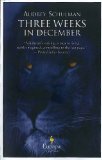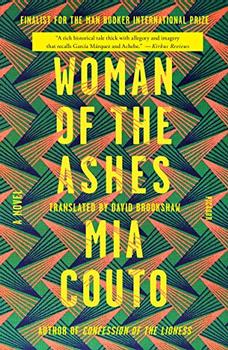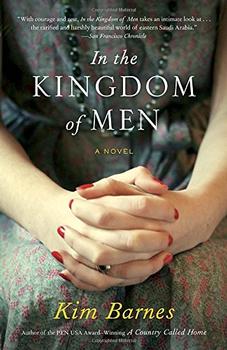Summary | Excerpt | Reviews | Beyond the book | Read-Alikes | Genres & Themes | Author Bio

With 22 out of 25 members rating it 4 or 5 stars, Three Weeks in December is a clear winner with BookBrowse readers. A great choice for book clubs, this novel will certainly inspire lively discussions.
Here's what they have to say:
I was fascinated by the detailed descriptions of plant life in Rwanda and what the culture was like in East Africa in 1899. It brought to life the conflict surrounding the preservation of the land and animals in Rwanda and the need for progress (Joy N). I must say the the writing is beautiful. Many passages brought tears to my eyes, and I had to read them to my husband (Mary L). Schulman states she read over 70 books in addition to having spent time in Africa before writing Three Weeks in December. That comes through. To tie so much information into a fascinating story is really a gift (Jeanine L). At first, this book struck me as - oh no - a biracial scientist with Asperger's in the jungle with gorillas? And a repressed gay man in the jungle in the late 1800's? I thought it was all too much. But this turns out to be a well-written story about love, friendship, loss, and science; it is all that (Kimberly H). Beautiful descriptions of Africa and rich, well-developed characters - this is a book to buy, not just borrow from the library (Katherine Y).
Many reviewers appreciated Schulman's parallel narrative structure and her evocative writing style:
This story is told in two parts in alternating chapters... a very effective technique. I was strongly interested in both plot lines and really did not see the end coming (Molinda C). This is a book to savor. Read it slowly because the words transform into poetic images of Africa. Schulman weaves back and forth between the stories of two emotionally challenged people: Jeremy, who is struggling with being gay in the nineteenth century and Max, who is coping with Asperger's. It is a beautiful, beautiful book - one that you'll finish and immediately want to read again. Look for clues as to what makes these two seemingly disparate stories connected - the truth will surprise you (Mary R). Each character is challenged by what sets them apart from society... Add life threatening events to each of their stories, and you have a compelling and moving novel, a story that you can't help thinking about days after finishing it (Christine P).
While others enjoyed learning from the author's extensive research:
Books that are built upon significant research often lose authenticity - they become forced, the story a conduit for the facts. That is not the case in Three Weeks in December where the author has maintained respect for both storytelling and fact building (Sarah H). I am a developmental pediatrician and so was drawn to this book because one of the main characters has Asperger's syndrome. The author did a great job getting inside that character's head and helped me to understand the point of view of an Aspie (Molinda C).
And nearly everyone found a different reason to recommend Three Weeks in December:
I urge all to step outside their usual genre and READ THIS BOOK! (Mary L) I highly recommend Three Weeks in December for any individual or group interested in current events as well as African history (Jennifer P). I really enjoyed this novel, and recommend it to anyone who enjoys reading adventures (Elise B). I recommend it to anyone who enjoys historical fiction. Book clubs will have a number of topics to discuss - the impact of "progress" on the environment, past and current political unrest in Africa, genocide, pharmaceutical companies and their priorities, homosexuality, and animal rights to name a few (Rosemary S). I recommend it to readers looking for something a bit different (Nancy O). This book has so many themes going on and is a great recommendation for any book club (Jill S).
![]() This review
first ran in the February 9, 2012
issue of BookBrowse Recommends.
This review
first ran in the February 9, 2012
issue of BookBrowse Recommends.

If you liked Three Weeks in December, try these:

by David Brookshaw, Mia Couto
Published 2019
The first in a trilogy about the last emperor of southern Mozambique by one of Africa's most important writers.

by Kim Barnes
Published 2013
From the PEN USA Award-winning author of A Country Called Home, a richly imagined new novel about a young woman who leaves the dusty farmland of 1960s Oklahoma to follow her husband to the oil fields of Saudi Arabia and finds a world of wealth, glamour, American privilege, and corruption.
Your guide toexceptional books
BookBrowse seeks out and recommends the best in contemporary fiction and nonfiction—books that not only engage and entertain but also deepen our understanding of ourselves and the world around us.